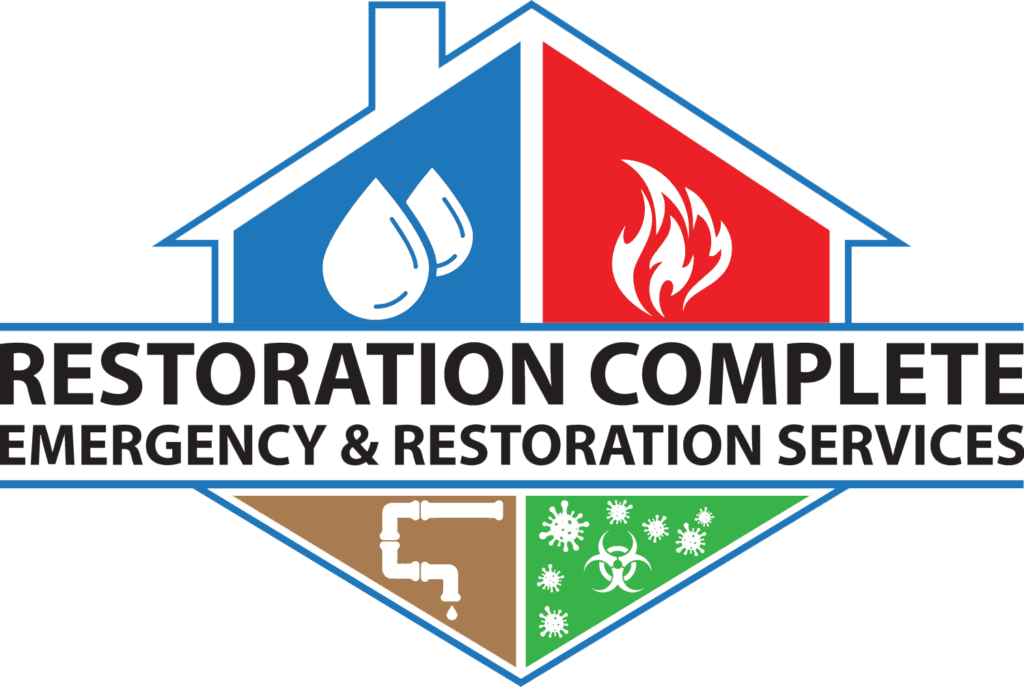Atlanta has endured numerous Atlanta historic flood events, each etching a deep narrative in the city’s memory. This article uncovers the dramatic floods that have tested Atlanta’s mettle, significantly focusing on the profound impacts of the city’s most devastating floods in 2009, the tumultuous currents of Tropical Storm Alberto in 1994, and earlier cataclysmic river surges. Join us as we recount the resilience and recovery that define Atlanta’s relationship with these natural upheavals.
Key Takeaways: Atlanta Historic Flood Events
- Atlanta has a history of significant flood events, such as the 2009 floods and Tropical Storm Alberto, which caused widespread damage and underscored the necessity for effective flood management and preparedness.
- The economic impact of flooding in Atlanta can be devastating, with the September 2009 floods alone causing an estimated $500 million in damage to over 20,000 homes and businesses and highlighting the need for robust infrastructure.
- Restoration Complete LLC operates as a key disaster recovery service provider in Atlanta, offering a comprehensive range of restoration services and collaborating with insurance companies to assist in the aftermath of flood events.
Atlanta’s Most Notable Floods
Atlanta’s story of battling against the raging waters is a tale that goes back many decades. From the Chattahoochee River’s dramatic overflow to the havoc wreaked by Tropical Storm Alberto, the city has seen its fair share of flood events. The September 2009 floods, in particular, marked a catastrophic chapter in Atlanta’s history, triggered by several days of unrelenting rain that overwhelmed local watershed systems,. These floods were statistically rare, with a less than 0.01% chance of such high levels of rainfall happening in a given year.
Atlanta Historic Flood Events: No account of Atlanta’s flood history would be complete without mentioning the Chattahoochee River. This river, which gracefully weaves its way through the city, has, on occasion, overflowed its banks with devastating consequences. Next, we will examine in detail these significant flood events and their enduring influence on the Atlanta metropolitan area.
Chattahoochee River Overflow
The Chattahoochee River, a geographical feature that’s as much a part of the metro Atlanta area as its famous peach trees, has been a significant contributor to flooding in the North Georgia region. The river overflowed in 1919 and 1951, leading to considerable damage to Atlanta and surrounding areas. These events served as a stark reminder of nature’s might and the need for effective flood management strategies.
Notably, over the years, the Chattahoochee River’s floodplain has witnessed an upsurge in development. This trend has resulted in:
- Higher flood risks
- More severe flood events
- Overflowing river banks contributing to soil erosion and sedimentation, affecting the health of local watersheds
- Disrupted ecosystems and property damage in areas hit by the river’s rise, such as the Peachtree Creek
Tropical Storm Alberto
In the summer of 1994, Atlanta braced itself as tropical storms, like Tropical Storm Alberto, swept across the region. The storm led to federal disaster declarations for several counties due to its significant flooding impact. Alberto brought with it:
- Up to 27 inches of rainfall in some areas
- Extensive flooding throughout the impacted regions
- Thousands of homes and businesses inundated
- Major highways submerged
- Access to many areas cut off
The storm’s wrath, originating from the Atlantic Ocean and passing through the Gulf of Mexico, brought heavy rains that caused major damage in rural areas and were felt far and wide.
The sight that greeted the aftermath of Tropical Storm Alberto was bleak. The repair costs for the damage caused by the storm added up to millions of dollars, underscoring the storm’s lasting financial impact. Yet, even in the face of such devastation, the resilience of the Atlanta community shone through as they worked together to rebuild and recover.
September 2009 Floods
Atlanta Historic Flood Events: The floods of September 2009 were unlike anything Atlanta had experienced before. The Chattahoochee River reached unprecedented levels, resulting in a 500-year flood event for the region. The tributaries of the Chattahoochee, such as Peachtree Creek and Nancy Creek, also saw record-breaking water levels, contributing significantly to the widespread flooding. The intensity of the flooding was evident at river gages, with waterways like Sweetwater Creek and the Dog River shattering previous records by reaching stages up to 20 feet above flood level.
The devastation of the September 2009 floods was far-reaching, impacting not only the Atlanta Metropolitan area but also extending to Northern Georgia. Ten lives were tragically lost, and widespread damage led to Federal Disaster Declarations across seventeen counties within Georgia, primarily in the Atlanta Metropolitan area. In fact, these areas received federal disaster declarations, emphasizing the severity of the situation. The impact of this event was a stark reminder of the power of nature and the importance of preparedness and effective response.
The Cost of Flooding
Flooding comes with a steep price tag. The 2009 floods in Atlanta resulted in substantial property damage, with initial estimates at $250 million that eventually reached $500 million, impacting over 20,000 homes and businesses. According to FEMA, flood damage in Georgia can amount to $25,000 per inch of water. More than 16,000 inquiries for federal aid were made as of September 2010, emphasizing the extent of recovery efforts needed after the Atlanta floods.
The costs associated with flooding are not limited to property damage alone. The impact on infrastructure, the economy, and the community’s wellbeing also need to be factored into the equation. We will now explore further the financial burden that flooding has imposed on Atlanta’s residential and commercial properties, as well as its infrastructure.
Residential and Commercial Losses
Atlanta Historic Flood Events: Residential areas bore the brunt of the 2009 floods in Atlanta, with a staggering 16,981 homes being impacted. Homeowners found themselves grappling with structural damage and mold growth due to flooding, with repair costs often surpassing $50,000. The aftermath of a flood is a daunting and distressing time for homeowners, with many faced with the monumental task of restoring their homes while dealing with the emotional toll of the disaster.
Commercial properties and other buildings were not spared either. Income-generating entities, including Airbnb guest homes, also suffered from the floods, resulting in a significant loss of revenue for the owners. The economic implications of these losses extend beyond the individual property owners, affecting the wider community and economy.
Infrastructure Damage
The infrastructure of a city is its backbone, and when floods hit, this backbone can be severely compromised. The Atlanta flooding led to major closures of interstates including I-20, I-75, and I-85, as well as extensive road blockages in Cherokee County, notably Interstate 575. Such disruptions have wide-ranging impacts, from the delay of emergency services to the day-to-day commute of the city’s residents.
Atlanta Historic Flood Events: The September 2009 floods, caused by continuous rain, also saw the inundation of the R.M. Clayton sewage treatment plant, leading to the release of millions of gallons of untreated sewage into the waters. This event underscores the extensive and often unseen damage that floods can inflict on a city’s infrastructure. It also highlights the importance of robust and resilient infrastructure in mitigating the effects of future flood events.
Restoration Complete LLC: Your Ally in Disaster Recovery
In the wake of a disaster, having a reliable partner to help navigate the recovery process is invaluable. That’s where Restoration Complete LLC comes in. Based in Lawrenceville, GA, this disaster management and restoration company provides comprehensive disaster recovery services. Opting for Restoration Complete LLC means choosing a partner who is committed to restoring properties with empathy and expertise after a disaster.
From water damage restoration to mold remediation and storm damage repair, Restoration Complete LLC offers a wide range of services to help Atlanta residents bounce back after flood events. We will now examine in depth these services, the professionalism and expertise of the Restoration Complete LLC team, and their collaboration with insurance companies.
Services Offered
Restoration Complete LLC is more than just a disaster recovery company. They are a lifeline for those affected by floods and other disasters. Offering a comprehensive suite of restoration services including water damage restoration, mold remediation, storm damage repair, and emergency plumbing, they cater to the unique needs of every client,. Whether it’s damage cleanup, smoke odor removal, structural repair, rapid water extraction, drying, dehumidification, or safe and effective mold removal, Restoration Complete LLC has got it covered.
These services are not limited to residential properties. Restoration Complete LLC also caters to commercial properties, allowing the company to address a wide range of client needs. Their 24/7 emergency services ensure that they are always there when their clients need them most, providing urgent plumbing needs and other critical damage control operations.
Professionalism and Expertise
When it comes to disaster management and restoration, expertise and professionalism are crucial. Restoration Complete LLC’s team offers:
- IICRC certification, endorsed by the American National Standards Institute (ANSI), reinforcing the professionalism and expertise provided
- Extensive experience in the field
- The use of the latest equipment and techniques to return properties to their pre-damage condition
Beyond their technical expertise, Restoration Complete LLC is known for:
- their professionalism
- exceptional customer service
- commitment to punctuality
- empathy and understanding during distressing times
Their commitment to these qualities has earned them the trust and confidence of their clients.
Insurance Collaboration
Navigating insurance claims after a disaster can be a complex and daunting process. Restoration Complete LLC offers the following services to streamline claims and maximize coverage for clients:
- Collaborating with all insurance companies
- Guiding clients through the insurance process
- Advocating for clients’ interests during flood events
- Prioritizing clients’ needs in discussions with insurers
The company’s commitment to professionalism ensures that clients receive the support they need during the claims process.
Restoration Complete LLC has introduced a cloud-based collaboration portal specifically designed to improve coordination during restoration projects and insurance claims. This portal offers the following features:
- Integration with Xactimate and XactAnalysis for consistent data across the claim file
- Partnership with ContentsTrack for efficient inventory management in pack-out operations
- Real-time video collaboration via policyholders’ mobile devices, allowing for immediate and accurate assessment of claims.
Preparing for Future Flood Events
Preparedness is a key element in mitigating the impact of future flood events. This involves:
- Having defensive materials such as sandbags, plywood, and plastic sheeting readily available to safeguard homes during flood events.
- Creating a disaster survival kit with essential supplies.
- Having a weather radio to stay informed about the latest updates.
- Planning multiple evacuation routes, as floods can render usual paths inaccessible.
These measures can significantly enhance preparedness for flood events and help residents stay safe.
Moving forward, the significance of insurance in gearing up for future flood events cannot be overstated. Moreover, the crucial role of the community in comprehending flood risks, formulating a family communication plan, and erecting protective barriers should not be minimized.
Flood Insurance
Flood insurance is a crucial safety net for homeowners in flood-prone areas. Standard property insurance does not typically cover flood damage, making it necessary for homeowners to opt for coverage through the National Flood Insurance Program or private insurers. Flood insurance in Georgia covers essential building elements such as foundational walls, electrical systems, furnaces, built-in appliances, and can also cover personal property like furniture and electronics.
The cost of flood insurance varies, with the average annual cost for an NFIP flood insurance policy in Georgia being $803, while the average in Fulton County is $724. Rates can vary significantly, with premiums in some counties like Chattooga County reaching up to $5,985. Despite the cost, the peace of mind that comes with knowing you’re protected can be invaluable.
Read More: Rising Damp: Tackling Mold Issues In Atlanta Due To Weather Fluctuations
Community Preparedness
A community’s strength in the face of a flood event lies in its preparedness. Here are some critical components of community preparedness:
- Understanding the area’s flood risk
- Having a Ready kit
- Creating a family communication plan for emergencies
- Constructing protective barriers
- Maintaining updated contact information for local emergency management agencies
These measures are pivotal for community safety.
Property owners should regularly review their insurance coverage to ensure full protection from flooding. This includes adapting to changes such as modified floodplains due to new construction. Homeowners in flood-prone areas are encouraged to contact the National Flood Insurance program to understand potential mitigation strategies and better prepare for future flood risks.
Summary
Throughout Atlanta’s history, the city has faced significant flood events that have tested its resilience. From the Chattahoochee River overflow to Tropical Storm Alberto and the devastating floods of September 2009, Atlanta has weathered the storms and emerged stronger. The immense cost of flooding, both in terms of property and infrastructure damage, underscores the importance of preparedness, insurance, and having a reliable partner like Restoration Complete LLC in disaster recovery. As we look to the future, let’s remember the lessons learned and strive to build a city that is not only resilient but also prepared for whatever may come.
Frequently Asked Questions: Atlanta Historic Flood Events
What were some of the most notable flood events in Atlanta?
Some of the most notable flood events in Atlanta include the Chattahoochee River overflow, Tropical Storm Alberto in 1994, and the September 2009 floods. These events have had significant impacts on the city and its residents.
What services does Restoration Complete LLC provide?
Restoration Complete LLC provides a wide range of restoration services, such as water damage restoration, mold remediation, storm damage repair, and emergency plumbing.
How does Restoration Complete LLC help with insurance claims?
Restoration Complete LLC helps with insurance claims by collaborating with all insurance companies to streamline the process and maximize coverage for clients. They also offer a cloud-based collaboration portal to enhance coordination during restoration projects and insurance claims.
How can residents prepare for future flood events?
Residents can prepare for future flood events by having defensive materials, assembling a disaster survival kit, planning multiple evacuation routes, and obtaining flood insurance. These steps can significantly improve their safety and preparedness.
What are some ways the community can enhance their flood preparedness?
The community can enhance their flood preparedness by understanding the flood risk, creating a family communication plan, building protective barriers, and maintaining updated contact information for local emergency management agencies. Taking these steps will help improve readiness for potential flooding.


